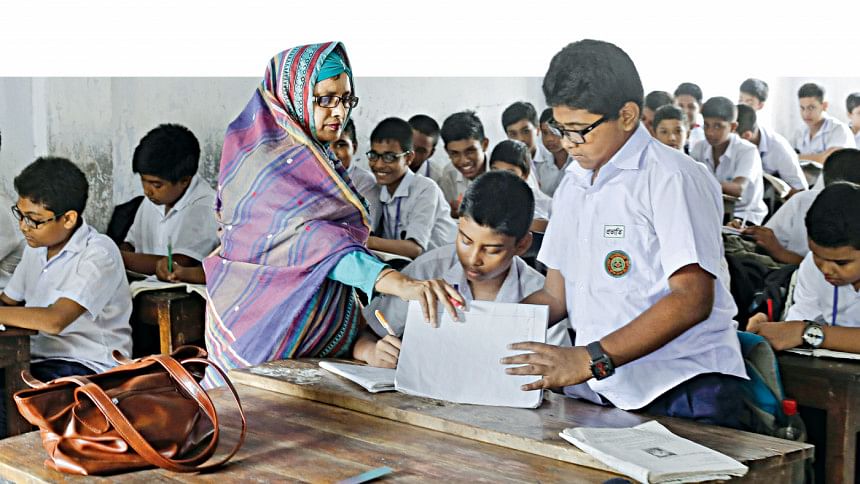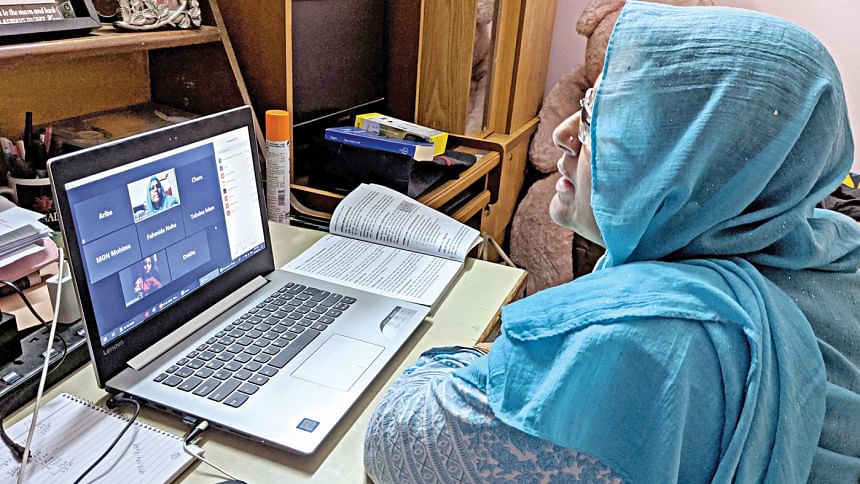Have we been kind to our teachers?

It has been a while since online classes began. Whatever excitement or anticipation there had been regarding online classes have successfully faded by now and these classes may even seem like a chore to a few.
It's clear at this point that the only thing that made our six hour long school days bearable to an extent was the brief moments of respite we shared with our friends. Staring at the black screen when the teacher is late to a Zoom meeting or sending text messages to your friends in between the online class does not quite strike the same chord in our hearts.
One fine day, it suddenly struck you and your friends—why not bring some "fun" into the class? In school, you would not even dare speak during this particular Math class; the teacher is strict. But who is going to admonish you when you are at your own house? You look at the technology used to conduct the online classes and instantly come up with a myriad ways to cut that boring Math class short the following week.
Soon, the week arrives and just as planned, you and some of your friends start playing random recordings in the background. The entire class erupts in laughter. The teacher ends up cutting the video call early because he could not find the students responsible for the disruption and it was not possible to conduct a class in such a raucous environment. It was a successful mission.
Now, the above described scenario is a fictional account but this occurrence has become quite rampant across the country. Educational institutions closed their campuses back in March and since then, most students have been locked inside their houses with minimal outside interaction to curb the spread of Covid-19. When online classes commenced, it brought along an opportunity to get some of that interaction back albeit in a limited manner. Unfortunately, due to the nature of the current situation, these online classes also allowed some of the students to let out their frustrations in destructive manners.
What we fail to acknowledge here is the side of the teachers who are actually faced with these circumstances with little to no previous knowledge as to how to deal with these situations. We have to keep in mind that our present state is just as new to the teachers as it is to the students.

In conversation with a teacher from a reputed English version school in Dhaka, Nazneen Akter* recalls her story of the hectic preparations undertaken to bring online education to her students. From testing various platforms to find the best one to use to connect with the students and getting properly acquainted with the technology, it has not been easy on the teachers. Throughout it all, their main target was to bring some structure back to the lives of their students since academic institutions will not open anytime soon. However, she and her colleagues were dismayed by the welcome they received.
"Sometimes students would make unnecessary noises and play records of profanities which would disrupt our lecture. I have encountered it once so far but my colleagues have been facing it for weeks. It is terribly unfortunate that certain students are not taking the concept of education, though online, seriously. They also seem to lack empathy for their teachers," she shares.
In light of these situations, university student Farhan Rahman, provided some insight as to why he had unfortunately been a part of causing rackets in classes back in his school days. He recalls, "My classmates would not give me attention until I acted like a class clown. These disruptions made the class more interactive and resulted in everyone talking with each other and with me. What altered my perspective was when I actually had a one-on-one interaction with my teacher where I got to hear her side of the story in dealing with me."
This can then explain why these class disruptions are way more prevalent online. The distance and the interaction through a screen can make the students forget that behind the screens, these teachers are just people who are trying their hardest to make sure their students do not fall behind due to the pandemic. Moreover, the teachers have their own families and children at home to take care of. We must not forget that the virus does not discriminate; many teachers have lost their lives in this pandemic, too.
It is uncertain as to when on-campus classes will resume. So there is no alternative to online education at the moment. To ensure it all goes smoothly, students need to be cooperative. It is important to remember that our teachers are not just entities restricted to the monitors of our computers and acknowledge their difficulties and struggles as well.
*Name has been changed for privacy
Tasnim Odrika likes pineapple on pizza and is willing to fight anyone who opposes her on this. Reach her at [email protected]

 For all latest news, follow The Daily Star's Google News channel.
For all latest news, follow The Daily Star's Google News channel. 



Comments